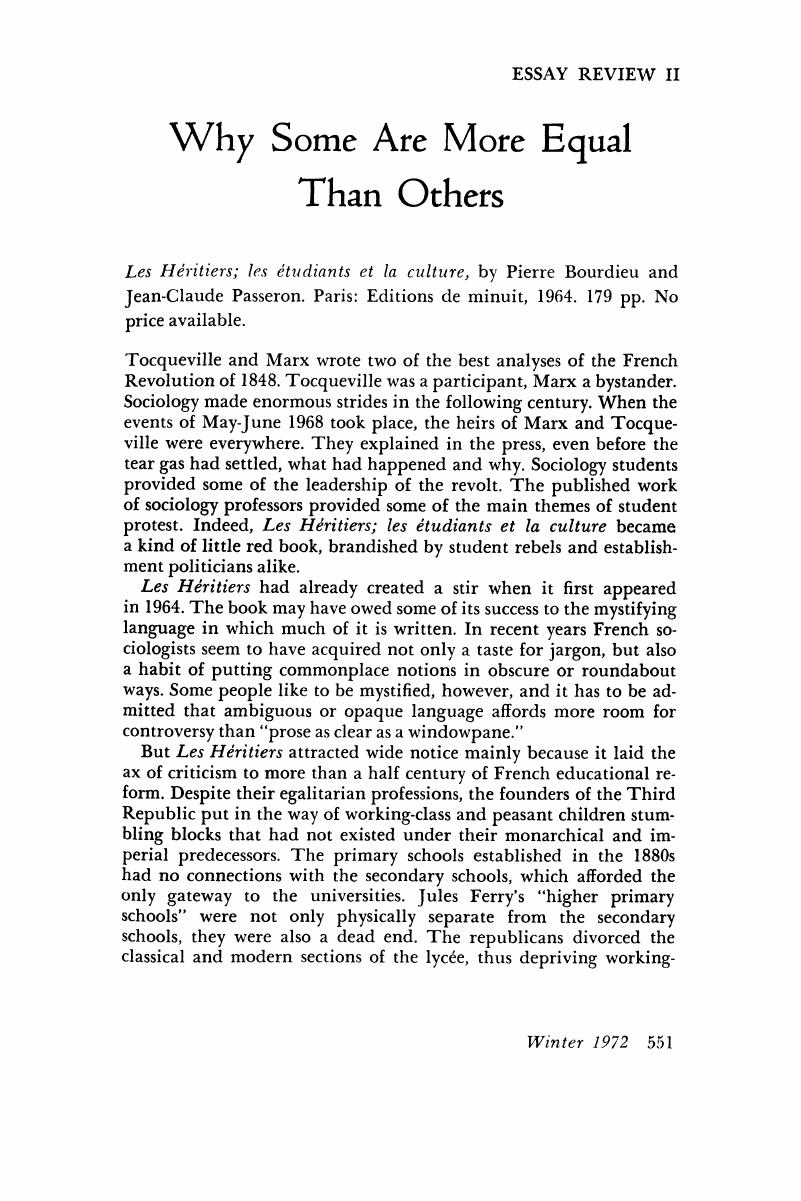No CrossRef data available.
Article contents
Why Some Are More Equal Than Others
Published online by Cambridge University Press: 24 February 2017
Abstract

- Type
- Essay Review II
- Information
- Copyright
- Copyright © 1973 by New York University
References
Notes
1. See, especially, the recent article of Robert Anderson, “Secondary Education in Mid-Nineteenth Century France: Some Social Aspects,” Past and Present 53 (November 1971): 121–46; also, my book The Politics of Educational Reform in France, 1918–1940 (Princeton, 1969), chap. 1.Google Scholar
2. Too recent, indeed, to have relieved students of the maddening frustrations with which the centralizing tradition can afflict daily existence. Before 1968, in order to be permitted to swim in the pool at the Nanterre campus, a student had first to make a journey into the heart of Paris and purchase a ticket at the office of intermural sports, which then had no connection whatsoever with the administration at Nanterre. Little wonder that few students were ever observed actually swimming in the pool (Adrien Dansette, Mai 1968 [Paris, 1971], p. 58).Google Scholar
3. For a succinct discussion of the passage of the Faure Bill, see Philip M. Williams and Martin Harrison, Politics and Society in de Gaulle's Republic (London, 1971), pp. 326–31.Google Scholar


